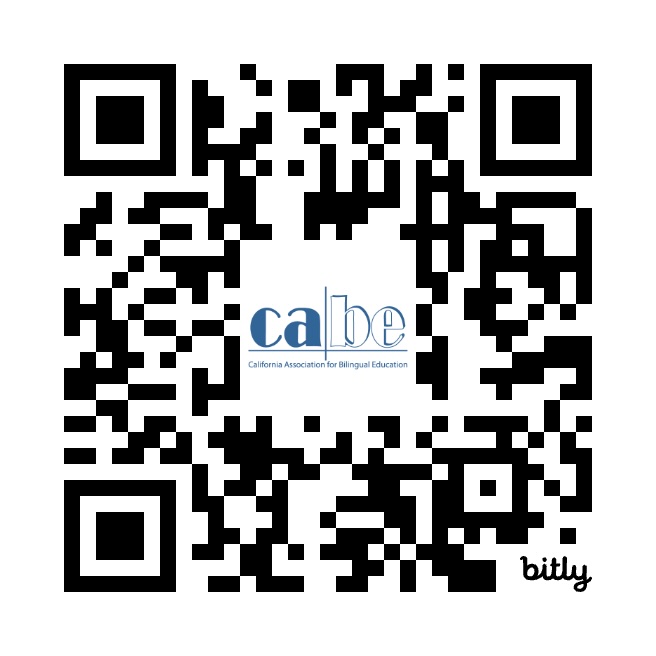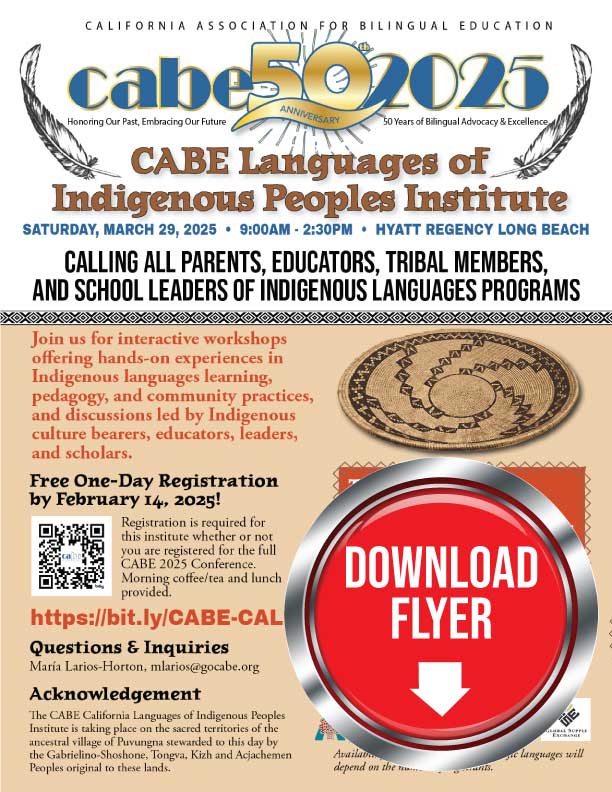CABE LANGUAGES OF INDIGENOUS PEOPLES INSTITUTE
Saturday, March 29, 2025 • 9:00 am - 2:30 pm
Pre-registration is required to attend this event.
CABE 2025 is proud to offer a FREE Saturday institute for teachers and school leaders of Indigenous Languages Programs!
- FREE for any TK-12 educators or support staff working in Indigenous Language programs whether or not you are attending the CABE 2025 conference.
Already attending CABE 2025? You are welcome to this institute as part of your regular registration.
The California Association for Bilingual Education (CABE) is proud to launch the first California Languages of Indigenous Peoples Institute (CALI) sponsored and co-convened by Academia Anawakalmekak, a Los Angeles-based international Indigenous Peoples nonprofit charter school and the Gabrielino-Shoshone Nation of Southern California, and Global Exchange as part of its 50th-anniversary conference. The Institute was convened by Anawakalmekak as a response to the United Nations Global Action Plan of the International Decade of Indigenous Languages and the Indigenous Education Now! Campaign in Los Angeles, California. The Institute aims to join the global call for action to uplift and advance the rights of Indigenous Peoples to their languages in all aspects of society, especially education, while inspiring a shared commitment to meaningfully engaging in the revitalization, cultivation, and sustainability of Indigenous languages to increase the number of new speakers, improve language fluency and encourage greater use of Indigenous languages in the public domain by Indigenous Peoples.
Registration is required but free of charge for CABE 2025 participants, parents, electeds, educators, and Indigenous community members, thanks to our institute sponsors. This milestone event will celebrate the rich linguistic heritage of Indigenous Peoples who make California their home while fostering dialogue and collaboration among educators, advocates, and community leaders.
The CALI Institute will serve as a vibrant hub for learning and exchange, featuring sessions, workshops, and discussions led by Indigenous culture bearers, educators, leaders and scholars. Attendees will explore critical topics, including education law, language revitalization, traditional ecological knowledge, sovereignty, sustainable development, and innovative educational practices.
Interactive workshops will offer hands-on experiences in Indigenous language learning, pedagogy, and community practices, deepening participants’ understanding of the vitality of Indigenous languages and their nations and communities.
Join us to celebrate Indigenous heritage, advocate for Indigenous rights, and explore pathways toward a more inclusive future.
Click button below to register by March 7, 2025, or scan QR Code.

